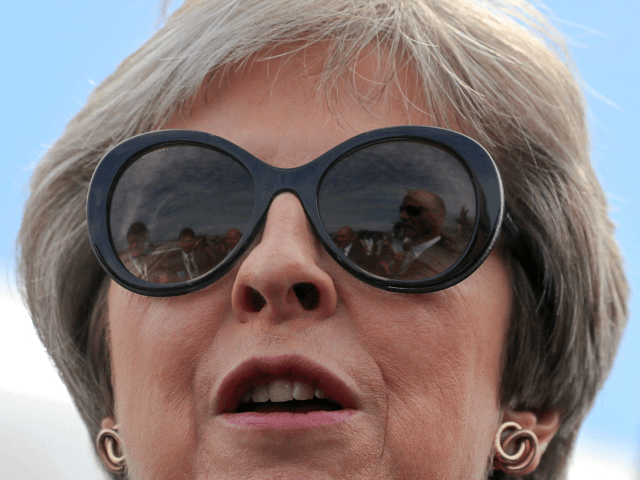Reports of Theresa May’s political demise may have been exaggerated, with her spokesman revealing that, while her time as Conservative Party leader is set to come to an end on Friday, she will remain as prime minister until she “believes that someone else can command the confidence” of MPs.
British prime ministers are not directly elected by the people, with prospective candidates instead being invited to serve by the monarch, generally on the assumption that they can command a parliamentary majority or at least muster enough support on key issues to execute a legislative programme.
In modern times, this has typically been the MP who leads the party with the largest number of seats in the House of Commons, although the role has in the past fallen to members of the House of Lords and MPs who were able to form a majority through a party coalition or with factional support across parties.
This means prime ministers who lose the support of the parties or factions which back them, or who choose to stand down voluntarily, can be replaced between elections, as in the case of Tony Blair and Margaret Thatcher.
‘The Worst Prime Minister Ever’ – Reactions to Theresa May’s Resignation Roll In https://t.co/TgwH6IGH6N
— Breitbart London (@BreitbartLondon) May 24, 2019
It had been expected that Theresa May’s resignation as Tory leader would see her replaced by the winner of the consequent Tory leadership contest fairly swiftly.
However, as Mrs May leads a minority government, dependant on support from Northern Ireland’s Brexit-supporting Democratic Unionist Party (DUP) for a parliamentary majority, it is not guaranteed that her successor will be able to command a Commons majority, particularly if he or she is a Brexiteer committed to leaving the European Union on the latest delayed deadline of October 31st with or without a deal — which could see Tory MPs loyal to the EU side with the left-liberal opposition in a vote of no confidence.
This would not necessarily be an issue in terms of delivering Brexit provided the new prime minister could prevent a vote of confidence to remove them, possibly by proroguing Parliament until Brexit after the new legal exit day on October 31st — but Mrs May could sabotage this by refusing to surrender the prime ministership until the new Tory leader receives Commons approval.
And, according to the Guardian newspaper, the Prime Minister’s spokesman insists her premiership will only come to an end when “she says to the Queen that she is stepping aside and believes that someone else can command the confidence of the House”.
Have I missed something? Has there been a coup? Has Speaker Bercow become head of state? Because, if not, he has no prerogative over the prorogation of Parliament. https://t.co/oxd151J2cD
— Marcus Walker (@WalkerMarcus) June 6, 2019
Opposition politicians had suspected that Parliament would be prorogued for the summer recess slightly early — possibly as soon as July 19th — so the winner of the Tory leadership in the week of July 22nd could take over and put together a new Cabinet without having to contend with immediate parliamentary action against them.
If Theresa May insisted on staying on as interim prime minister throughout the recess, which would likely last until September, and possibly until such time as her successor received some manner of seal of approval from the House of Commons, the capacity of a Leave-supporting Tory leader to ensure Brexit takes place on October 31st would be severely hampered.

COMMENTS
Please let us know if you're having issues with commenting.